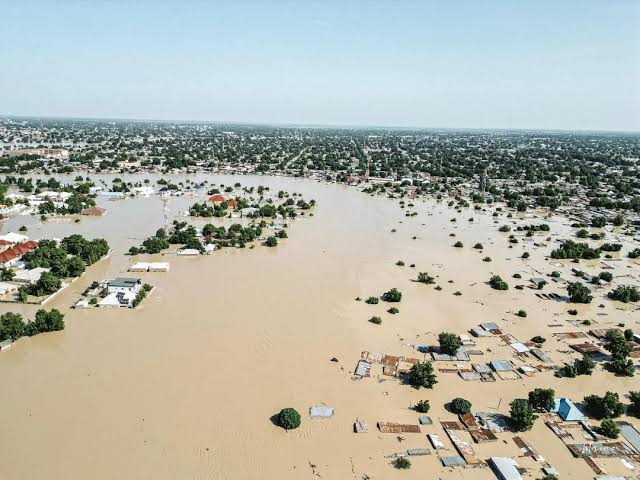BY AISHA YUSUF SABO, SEPTEMBER 10, 2025 | 08:20 PM
We read about floods from a safe distance, forgetting that survival itself is a privilege. If you are a resident of Maiduguri reading this, then give your thanks to the Almighty. You have survived the 10th September flood that claimed 150 lives.
On Tuesday, September 10, 2024, Maiduguri woke to the sound of rushing water invading homes, shops, and streets. The city, already vulnerable and scarred by over a decade of humanitarian crisis from the Boko Haram insurgency, was brought to its knees by a deluge, the worst since 1994.
In no time, parts of the city were submerged. Roads turned into rivers, traders lost goods worth millions, and homes were reduced to ruins, displacing over 400,000 residents.
The disaster, caused by the collapse of the Alau Dam, resulted in unprecedented devastation. Critical infrastructure, including bridges, roads, electricity systems, healthcare facilities, and schools, was severely damaged. Floods are not just natural disasters but are also acts of neglect by governments that fail to plan and by communities that refuse to change harmful habits. The collapse occurred largely because prior alarms from environmentalists were ignored. The culture of dumping refuse into drainage channels and disregarding building regulations had also worsened the situation.
Now if all we do is mourn and move on, it will become just another line in the long list of unfortunate incidents. True honour lies in ensuring it never happens again. September 10, 2024, should be remembered not only for its grief but as the day we chose accountability over complacency. We cannot afford the reoccurrence of such tragedy.

